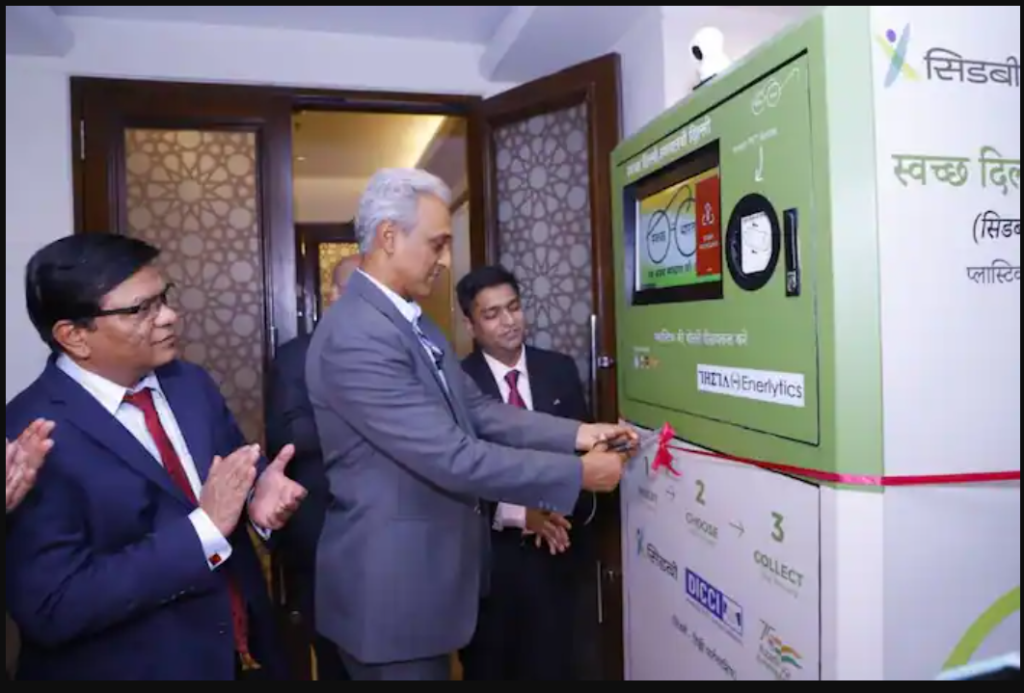Plastic Reverse Vending Machines will accept only plastic bottles and start the processing as soon as they receive the waste. They will shred the bottles, as the first step.
New Delhi: Under the CSR initiative to curb carbon footprint, the Small Industries Development Bank of India (SIDBI) and Dalit Indian Chamber of Commerce and Industries (DICCI) jointly announced the installation of 1,000 Plastic Reverse Vending Machines (RVMSs). The launch was announced under ‘Swachh Delhi, Swavalambi Delhi’. According to a press release, DICCI will take care of the maintenance and advertisement of the machines.
The step has been taken to create employment opportunities for entrepreneurs from the weaker sections of the society, the release said. Milind Kamble, Chairman, DICCI, said, “It is our endeavour to map out the places for the installation of RVMs and oversee the maintenance of these machines. We are looking at installing up to 60 plastic reverse vending machines across Delhi/NCR in the first phase. We’ve already in the process of installing up to 40 RVMs in Kashi. The idea is to cover every nook and corner of the country.”
RVMs at Malls, Metro Stations
Sivasubramanian Ramann, IAA&S and CMD, SIDBI said, “I’d like to see these more of these machines (RVMs) at as many public places like malls, metro stations, parks etc. as possible. To be able to get plastic recycled will call for a whole lot more than just passion, it would take many more corporates to come forward and do their bit in reaching carbon neutrality.”
How will RVMs work?
- RVMs are machines with sensors that accept only plastic bottles.
- After the deposit of bottles, the machine starts to shred them immediately.
- If any other object is deposited, the machine will automatically reject it.
Karan Dhaul, Chairman and Co-founder of Theta Enerlytics, the implementing agency added, “India has about 5000 registered plastics manufacturing/recycling units and about 1000 unregistered units. This is far too less as compared to the amount of plastic waste produced annually (about 660,787.85 tonnes in India). So, we need a unified effort and active awareness to be able to process plastic waste.”
What are the side effects of plastic waste?
Even though the proportion of recyclable plastic (PET and PVC) in India’s total plastic waste is 94%, around 79% of plastic ends up in the natural environment including landfills.
Chemicals used to produce plastic contain toxins that impair the immune system among other adverse effects on the skin, eyes, and brain. As plastics degrade in these landfills, microplastics are released into the soil, water, and environment and eventually enter the food chain. While burning plastic releases hydrochloric acid causing respiratory problems.
Article Credits: India.com
